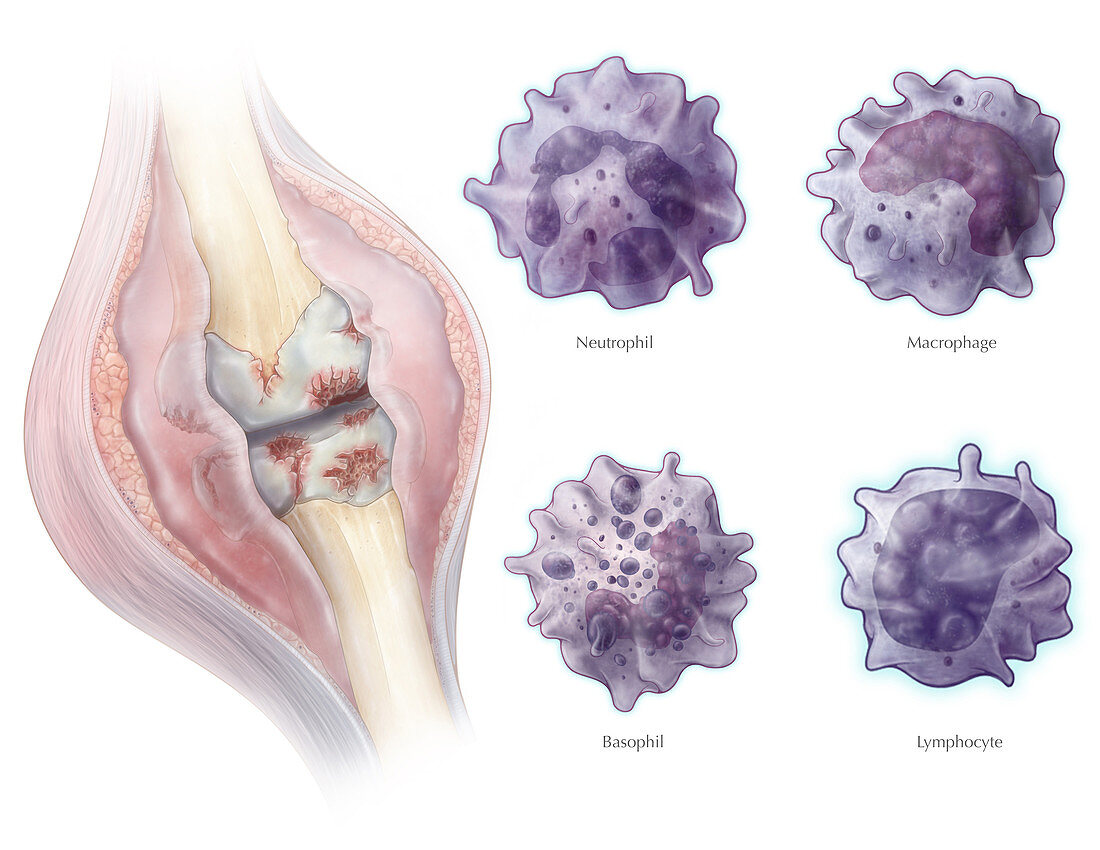Rheumatoid Arthritis White Blood Cells
Bildnummer 12033544

| An illustration depicting the white blood cells involved in rheumatoid arthritis,an autoimmune inflammatory disease which primarily affects joints,yet can spread to other areas of the body such as the heart or lungs. Abnormal interactions between white blood cells initiates an autoimmune response against healthy tissue,promoting the inflammation of synovial joints. As a result,excess synovial fluid containing white blood cells,cytokines and antibodies,begins collecting in the joint cavity. As the disease progresses,the synovial membrane surrounding the joint begins to thicken as cartilage and bone are gradually eroded. This can eventually lead to pain,limited movement or deformity of the joint,while also leading to fever or fatigue. Rheumatoid | |
| Lizenzart: | Lizenzpflichtig |
| Credit: | Science Photo Library / Oto, Evan |
| Bildgröße: | 3600 px × 2782 px |
| Modell-Rechte: | nicht erforderlich |
| Eigentums-Rechte: | nicht erforderlich |
| Restrictions: |
|
Preise für dieses Bild ab 15 €
Universitäten & Organisationen
(Informationsmaterial Digital, Informationsmaterial Print, Lehrmaterial Digital etc.)
ab 15 €
Redaktionell
(Bücher, Bücher: Sach- und Fachliteratur, Digitale Medien (redaktionell) etc.)
ab 30 €
Werbung
(Anzeigen, Aussenwerbung, Digitale Medien, Fernsehwerbung, Karten, Werbemittel, Zeitschriften etc.)
ab 55 €
Handelsprodukte
(bedruckte Textilie, Kalender, Postkarte, Grußkarte, Verpackung etc.)
ab 75 €
Pauschalpreise
Rechtepakete für die unbeschränkte Bildnutzung in Print oder Online
ab 495 €
Keywords
- abnormal,
- Arthritis,
- autoimmun,
- Entzündung,
- Gelenkschmerzen,
- Illustration,
- Immunsystem,
- Knorpel,
- Krankheit,
- Kunst,
- Kunstwerk,
- Lymphozyten,
- Makrophagen,
- medizinisch,
- medizinische Illustration,
- Pannus,
- Pathologie,
- rheumatisches Fieber,
- rheumatoide Arthritis,
- Schwellung,
- Synovialgelenk,
- T-Zelle,
- weißes Blutkörperchen
